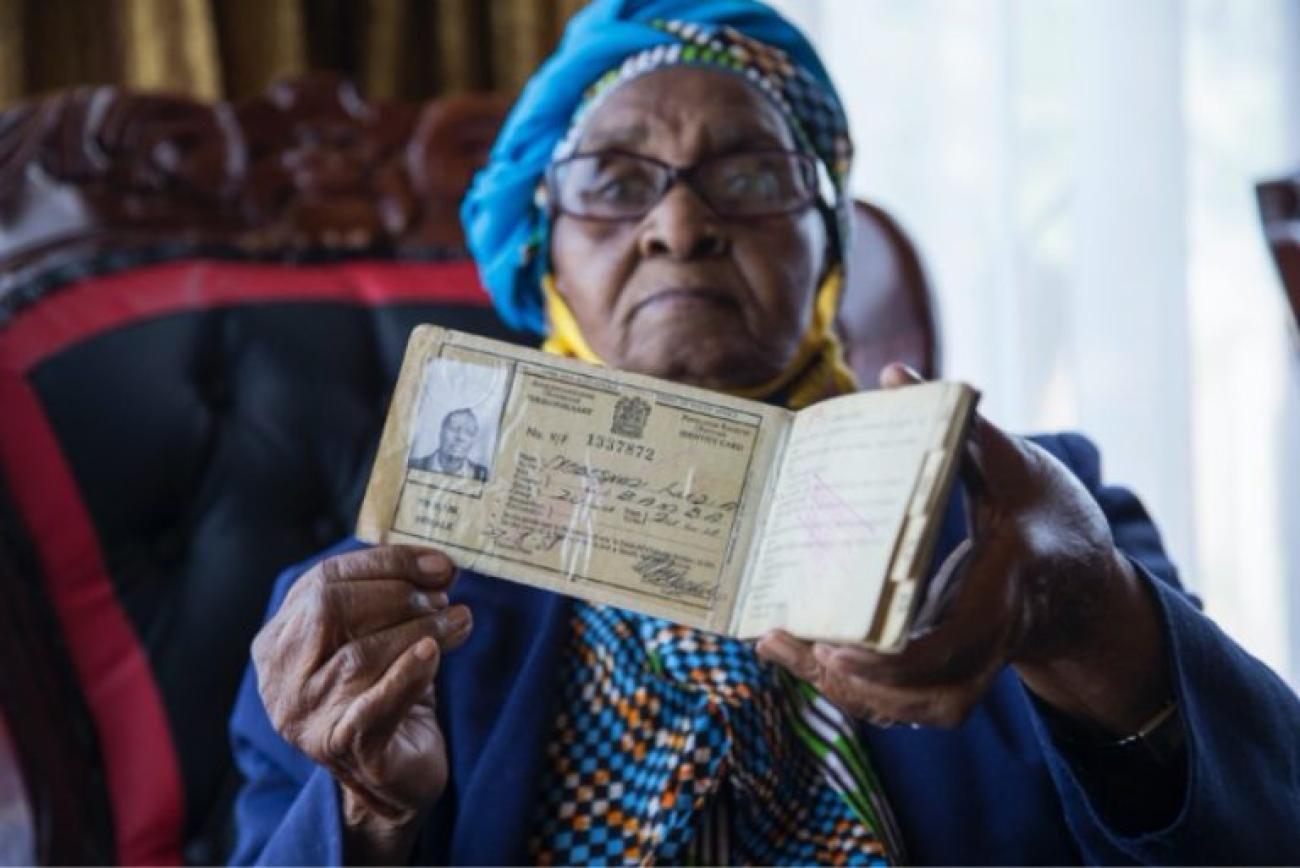Selinah Mnguni was 23 years old and already three months pregnant when she was injured in the Sharpeville massacre on 21 March 1960. Attending a protest in peaceful defiance of the apartheid regime, Selinah and many other young people were demonstrating against pass laws designed to restrict and control the movement and employment of millions of Black South Africans.
Selinah was shot in her leg but survived the massacre. Many others were not so lucky: 69 unarmed and non-violent protesters were gunned down by the South African police and hundreds more were injured. Protestors as young as 12 and 13 were killed.
The Sharpeville massacre sparked hundreds of mass protests by black South Africans, many of which were ruthlessly and violently crushed by the South African police and military. The moral outrage surrounding these events led the United Nations General Assembly to pronounce 21 March as the International Day for the Elimination of Racial Discrimination, which recognized racism as a gross human rights violation.
The events also prompted the International Convention on the Elimination of All Forms of Racial Discrimination which took effect on 4 January 1969. This affirmed that the elimination of racial discrimination was a global challenge that affronted the respect and dignity of all human beings.
This year, UN and the Office of the High Commissioner for Human Rights (OHCHR) joined South Africans in commemorating the 61st anniversary of the Sharpeville massacre, using the flagship campaign #FightRacism to promote awareness of these critical issues.
“Youth standing up against racism” was the 2021 theme, aimed at fostering a global culture of tolerance, equality and non-discrimination that calls on each one of us to stand up against racial prejudice and intolerant attitudes.
The OHCHR Regional Office for Southern Africa also produced a series of digital stories on the Sharpeville massacre and young people’s concerns about their human rights. It also contributed the headline story at the Anti-Racism Live Global Digital Experience that marked March 21 internationally with acclaimed artists, actors and prominent speakers from South Africa including Thuli Madonsela, Zulaikha Patel and Zwai Bala.
OHCHR’s regional representative Abigail Noko used the opportunity to call on all decision-makers to give youth a seat at the decision-making table.
“We need the voices of young people to break through the silence that locks in discrimination and oppression. We must listen to them, learn from them, and work with them to build a better future.”
Perseverance and determination are also needed to build on the lessons learned from the Sharpeville tragedy and repair the injustices of the past. A robust human rights framework is the only way to provide a remedy for those injustices, tackle inequality and underlying structural differences, exacerbated by the COVID-19 pandemic.
Now aged 84, Selinah says she is still proud of her efforts to end apartheid. “Knowing the democracy we have today was achieved in part because of the blood we sacrificed was worth it,” she says.
















